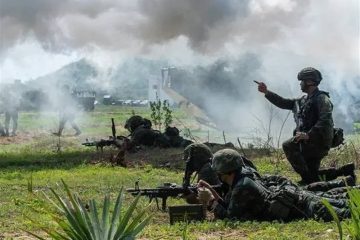The Growing Importance of BRICS in Global Politics
Introduction to BRICS
BRICS, an acronym for Brazil, Russia, India, China, and South Africa, represents a coalition of emerging economies that aims to balance global power dynamics traditionally dominated by Western nations. In recent years, the persistence of high inflation rates and geopolitical tensions has further emphasised the need for strong coalitions, as BRICS nations actively seek to enhance their roles on the international stage.
Recent Developments
In August 2023, during the BRICS summit in Johannesburg, South Africa, the group announced the expansion of its membership, welcoming six new countries: Argentina, Egypt, Ethiopia, Iran, Saudi Arabia, and the United Arab Emirates. This enlargement marks a significant shift in global alliances and economic partnerships, positioning BRICS as a formidable bloc with enhanced bargaining power.
The summit centred around collaborative efforts to create a more equitable world economy. Leaders committed to promoting trade in local currencies, reducing reliance on the US dollar, and developing sustainable infrastructure within member nations. These strategies are designed to limit the influence of the G7 and other Western nations over global financial policies.
Impact on Global Economics
The BRICS coalition aims to create a multipolar world where economic power is not concentrated in the hands of a few countries. This notion has gained traction amidst a backdrop of shifting economic paradigms, including rising inflation and supply chain vulnerabilities.
Analysts have observed that the coalition’s expansion could increase foreign direct investment opportunities and enable member countries to leverage their collective resources and markets for mutual benefit. By fostering stronger economic ties, BRICS nations aim to insulate themselves from external economic shocks and sanctions that have historically targeted individual countries.
Challenges Ahead
While the future of BRICS appears promising, challenges lie ahead. Differences in political ideologies, governance models, and economic development rates among member nations could pose hurdles in achieving cohesive strategies and objectives. Furthermore, the influence of Western countries will remain strong, and member nations will need to navigate these geopolitical dynamics carefully.
Conclusion
The BRICS coalition is rapidly evolving into a significant force that could alter the balance of global power. As these nations work to strengthen their solidarity and economic partnerships, the implications for international trade, investment, and political influence are profound. For businesses and policymakers, understanding the intricacies of BRICS and its potential effects on the global stage will be crucial in the coming years. The rise of BRICS not only signifies a shift in economics but also reflects a larger trend towards a multipolar world order.









